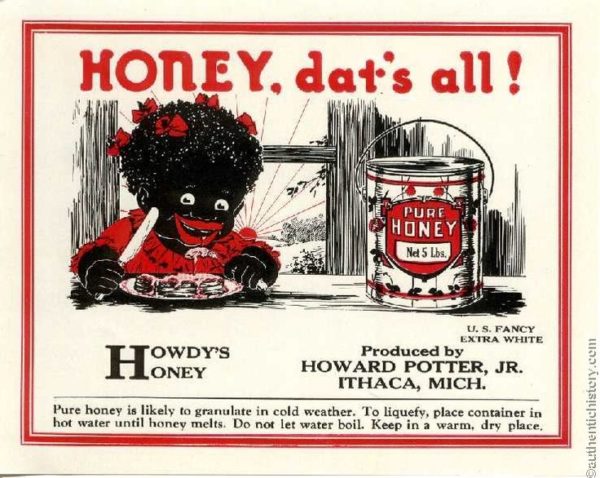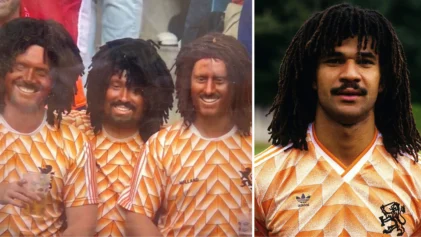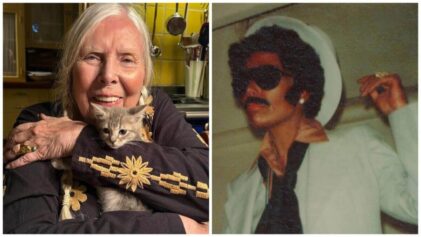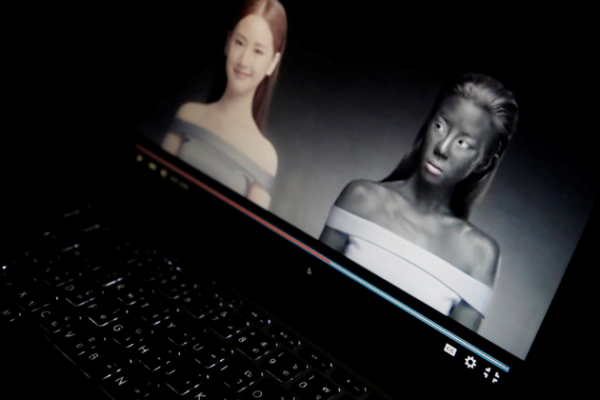
The ad focuses on an aging Thai actress promoting the skin-whitener product “Snowz.” The actress is in blackface on the right side of the screen and in her normal skin tone on the left.
The company realized that the public was not going for the overt racism portrayed in the ad so they pulled it from Thai TV.
The Thai cosmetics company Seoul Secret issued this apology:
“Our company did not have any intention to convey discriminatory or racist messages,” the statement posted on its Facebook page said. “What we intended to convey was that self-improvement in terms of personality, appearance, skills and professionalism is crucial.”
However, this ad fits in with Thailand’s persistence to use blackface in advertisements. In 2013, Dunkin’ Donuts Thailand used a Thai woman in blackface to sell a black donut.
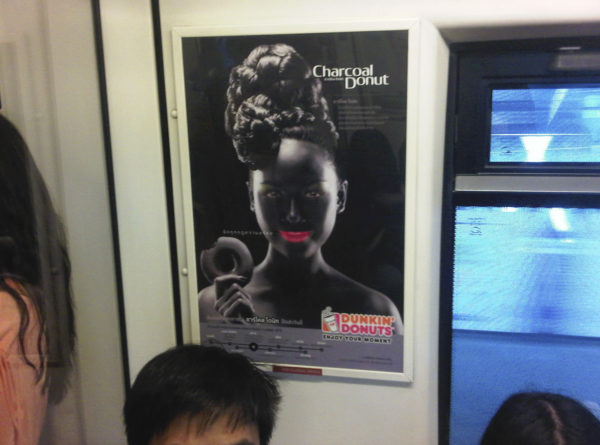
An advertisement poster of a smiling woman with bright pink lips in blackface makeup holding a donut is seen on a Skytrain, a commuter train in Bangkok, Thailand, Friday, Aug. 30, 2013. The Dunkin’ Donuts franchise in Thailand launched a campaign for its “Charcoal Donut” featuring the image. (AP Photo/Grant Peck)
Also, there is a household mop and dustpan that has historically been used in the country called “Black Man,” which uses a logo with a smiling Black man in a tuxedo and bow tie, à la Uncle Ben’s rice products here in the U.S.
These marketing strategies closely resemble the products of the 1920s in America. The sambo, the coon and the mammy were used to sell food, utensils and household goods.
Another case involving Hungarian artist Boglarka Balogh was meant to be used as a campaign to the save African women in various indigenous tribes on the brink of extinction. The artist used blackface to change herself into the different types of women to show “solidarity.”
https://twitter.com/nealcarter/status/684825848764067840/photo/1?ref_src=twsrc%5Etfw
After seeing that the act, no matter how well-intentioned it may have been, was in poor taste, she issued this public apology after the backlash:
“Since I had no intentions to offend anyone and yet I’m not able to answer to all of you, I’ve decided to delete my post. My intention was 100% pure with this tribal art, being a human right lawyer and journalist who knows pretty much about racism and similar issues, I have never imagined that my work will annoy so many people and that I will have to explain myself. And sure, I will not do that. Keep calm and love every human.”
These events show the complexities of race globally. Black people and black skin are treated like costumes here in the U.S. and abroad. Also, Black people are constantly told to lighten their skin in order to be considered “beautiful.”
Racist marketing schemes of yesteryear are still hanging around. The sale of skin-whitening products in Asia and Africa has risen over the years to push assimilation and colorism. These issues in America are only the tip of the iceberg when the whole world is taken into account.
